Libya
General Khalifa Haftar, leader of Libya’s eastern-based government says son of the country’s late leader, Saif-al-Islam Gaddafi, reserves the right to play a political role in the country.
“Why not? If he wants to play a political role, there is no problem,” Haftar said in response to a question about the feasibility of Gaddafi’s son entering politics.
The 44-year-old, was freed on June 10 by a Libyan militia group based in the western town of Zintan. He had been arrested and kept in captivity since 2011.
Haftar confirmed the release adding that Saif-al-Islam was living freely in areas under his jurisdiction like ‘any ordinary Libyan citizen.’
“I have not seen him but have followed his moves since his release; he is in a specific place. I have nothing against him; on the contrary, he is welcome,” Haftar told Al-Hayat, a Saudi-owned newspaper based in the United Kingdom.
SUGGESTED READING The Libyan ‘successor’ turned ex-prisoner: Saif al-Islam Gaddafi
Saif-al-Islam is the subject of summons by the International Criminal Court (ICC) which has charged him for his role in a violent crackdown on protesters against his father’s regime back in 2011.
Incidentally, the Tripoli-based Government of National Accord (GNA) has called for his arrest and surrender to relevant authorities. GNA leader, Fayez Al-Serraj last Tuesday (July 25) met with his rival, Haftar, in Paris under the auspices of the French government to dilate on ways to return the north African country to the path of peace.
Key time lines in the Libya crisis
- 1969 – Muammar Gaddafi rose to power
- Feb 2011 – An armed uprising started in the country
- March 2011 – NATO forces entered Libya enforcing a no-fly zone
- June 2011 – The ICC issues an arrest warrant for Gaddafi and his son
- August 2011 – Gaddafi reportedly quit Tripoli as rebels advanced
- October 2011 – He is captured and killed in his hometown of Sirte along with a son
- November 2011 – Saif al-Islam is captured by a militia and held in town of Zintan
- July 2015 – Tripoli court hands death sentence to Saif al-Islam in absentia
July 2016 – His lawyer announces Saif’s release but it is ‘rubbished’ by his captors - June 2017 – Second release announced but his whereabouts unknown
- June 2017 – ICC prosecutor issues ‘arrest and surrender’ order for Saif al-Islam
How Libya descended into the present chaos
The north African oil-producer was plunged into an armed conflict in 2011 following an uprising that led to the fall of the regime of Muammar Gaddafi. The North Atlantic Treaty Organization (NATO) joined rebels groups as part of efforts to oust Gaddafi.
NATO primarily enforced a no-fly zone over Libya. After seven months, the UN Security Council voted to end NATO’s mandate on 31 October following the death of Gaddafi. The former leader was captured in his hometown of Sirte and killed by his captors.
Libya is currently split with rival governments holding different parts. Islamic State insurgents also held parts of Sirte until they were recently pushed them out.
Libya has become the biggest security threat in the region whiles Europe continues to suffer floods of illegal immigration which was largely controlled during the Gaddafi regime.



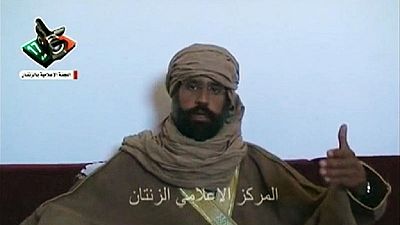

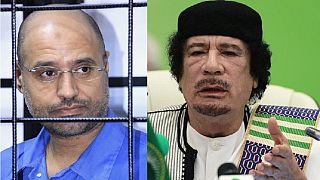
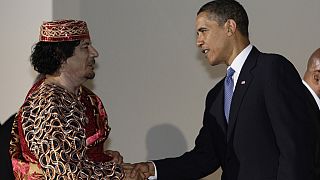
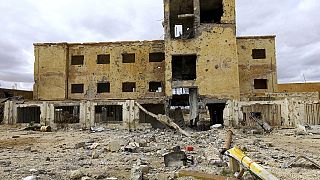
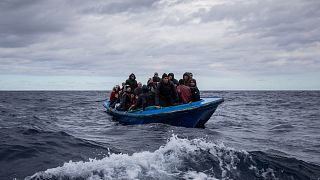
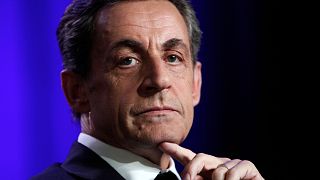
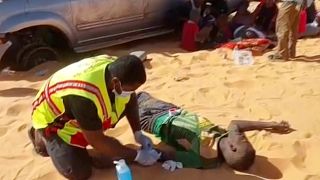



01:50
UN urges renewed political and climate action in Libya amid humanitarian and governance crises
Go to video
Pix of the Day: May 15, 2025
Go to video
Reports of US plans to deport migrants to Libya spotlight rights abuses
02:03
Libya hosts African volleyball championship
02:35
Sudanese Refugee Children Find Hope in Libyan School
Go to video
Libyan leaders call for an inclusive political process